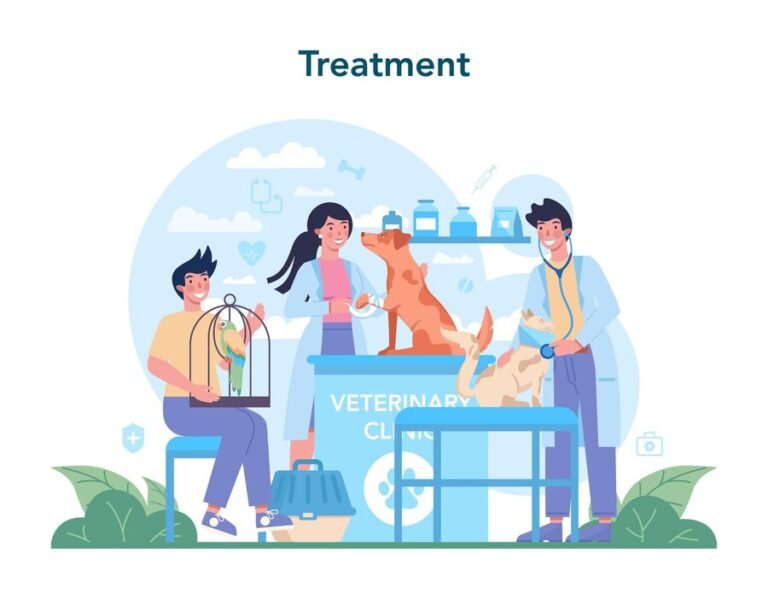
When you care for animals, whether you’re a seasoned pet owner, a dedicated farmer, or someone who volunteers at a shelter, understanding basic veterinary medicines can make a huge difference in an animal’s life. Just as having a first-aid kit at home for humans is essential, being familiar with common veterinary medicines can ensure you’re always ready to help your four-legged friends.
However, medicines for animals can sometimes feel like a maze of unfamiliar names, dosages, and uses. This guide will help you get acquainted with the top five veterinary medicines that every animal caretaker should know about. And don’t worry—we’ll keep things simple, relatable, and easy to remember!
Let’s dive in.
1. Amoxicillin: The Go-To Antibiotic
If your dog, cat, or livestock gets a bacterial infection, amoxicillin is one of the most commonly prescribed antibiotics. It’s a versatile medicine that fights a wide range of bacterial infections—from skin infections to urinary tract infections, and even respiratory issues.
Why It Matters: Bacterial infections can escalate quickly if left untreated. Having amoxicillin on hand (prescribed by a vet, of course) ensures that you can begin treatment promptly.
When to Use It:
Wounds or cuts showing signs of infection (redness, swelling, or discharge)
Urinary issues (frequent urination, blood in urine, discomfort)
Respiratory symptoms (coughing, wheezing, or nasal discharge)
Important to Remember: Amoxicillin should only be given under a vet’s supervision. Misuse or overuse can lead to antibiotic resistance, which makes future infections harder to treat.
2. Meloxicam: The Pain Reliever and Anti-Inflammatory
Animals experience pain just like we do, and meloxicam (a type of NSAID—Non-Steroidal Anti-Inflammatory Drug) is a lifesaver when it comes to pain relief. It’s often prescribed for arthritis, post-surgery pain, or injuries.
Why It Matters: Pain can greatly affect an animal’s quality of life. Whether it’s an aging dog with arthritis or a horse recovering from surgery, meloxicam can ease their discomfort and improve mobility.
When to Use It:
Joint pain and arthritis
Post-surgical pain
Inflammation due to injuries
Important to Remember: Never give human painkillers to animals without veterinary guidance. Medications like ibuprofen or acetaminophen can be toxic to pets. Meloxicam is specially formulated for animal use, but always double-check the dosage with your vet.
3. Ivermectin: The Parasite Protector
Parasites are a nightmare for any animal caretaker. Whether it’s fleas, ticks, worms, or mites, these pests can cause serious health issues for animals. Ivermectin is a broad-spectrum antiparasitic medicine commonly used to prevent and treat parasite infestations.
Why It Matters: Parasites not only make animals miserable, but they can also spread diseases. Regular parasite prevention is crucial for maintaining your animal’s health and preventing outbreaks.
When to Use It:
Heartworm prevention (especially in dogs)
Treating mange (mites)
Deworming livestock (cattle, sheep, goats)
Important to Remember: Ivermectin is powerful, and dosage varies by species and weight. Certain breeds, like collies, can have a genetic sensitivity to ivermectin, so always consult a vet before administering it.
4. Furosemide: The Heart and Lung Helper
Furosemide is a diuretic that helps remove excess fluid from the body. It’s typically prescribed for animals with heart disease, congestive heart failure, or fluid buildup in the lungs (pulmonary edema).
Why It Matters: Heart and lung conditions can quickly become life-threatening. Furosemide helps manage these conditions by reducing fluid buildup, allowing animals to breathe easier and feel more comfortable.
When to Use It:
Coughing or difficulty breathing due to fluid retention
Swollen abdomen (a symptom of heart failure)
Diagnosed heart disease or heart failure
Important to Remember: Furosemide can cause dehydration and electrolyte imbalances if not carefully managed. Always follow your vet’s instructions and ensure your animal has plenty of fresh water.
5. Activated Charcoal: The Emergency Detox
Accidents happen. If an animal ingests something toxic—like chocolate (for dogs), certain plants, or household chemicals—activated charcoal can help reduce the absorption of toxins.
Why It Matters: In cases of poisoning, time is critical. Activated charcoal binds to toxins in the stomach and intestines, helping to prevent them from being absorbed into the bloodstream.
When to Use It:
After accidental ingestion of toxic substances (chocolate, certain medications, household cleaners)
As instructed by a vet or poison control hotline
Important to Remember: Activated charcoal is not a cure-all. Always contact a vet or emergency clinic immediately if you suspect poisoning. Activated charcoal is most effective when administered quickly after ingestion.
A Few Final Thoughts on Veterinary Medicines
Being familiar with these top five veterinary medicines equips you to handle common health issues effectively. But while it’s great to know about these medications, remember that they should always be used under the guidance of a qualified veterinarian.
Here’s a quick recap:
Amoxicillin: For bacterial infections.
Meloxicam: For pain and inflammation.
Ivermectin: For parasite control.
Furosemide: For managing fluid retention in heart and lung conditions.
Activated Charcoal: For emergency detox situations.
Caring for animals means being prepared to handle the unexpected, and having a basic understanding of these medications can make you a more confident and capable caretaker.
